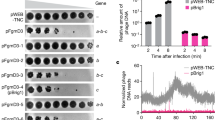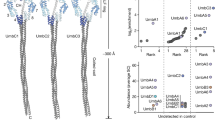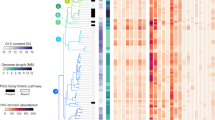Abstract
THE usefulness of nematodes of the saprophytic genera Panagrellus and Rhabditis maintained in mixed culture in corn meal agar for experimental purposes is often limited by severe bacterial contamination. Aureomycin was added to some of these cultures in an attempt to minimize this condition. Casual observations over a period of months seemed to indicate an increased nematode population in the aureomycin plates when compared with the untreated plates. The following experiment was carried out to establish the validity of these observations.
This is a preview of subscription content, access via your institution
Access options
Subscribe to this journal
Receive 51 print issues and online access
$199.00 per year
only $3.90 per issue
Buy this article
- Purchase on Springer Link
- Instant access to full article PDF
Prices may be subject to local taxes which are calculated during checkout
Similar content being viewed by others
References
Taylor, A. L., Julius Feldmesser, and Feder, W. A., Plant Dis. Reptr., 41 (6), 527–530 (1957).
Author information
Authors and Affiliations
Rights and permissions
About this article
Cite this article
EVERARD, C., FEDER, W. Effective Increase in Nematode Populations by the Addition of Aureomycin. Nature 184, 1887–1888 (1959). https://doi.org/10.1038/1841887a0
Issue Date:
DOI: https://doi.org/10.1038/1841887a0
Comments
By submitting a comment you agree to abide by our Terms and Community Guidelines. If you find something abusive or that does not comply with our terms or guidelines please flag it as inappropriate.



